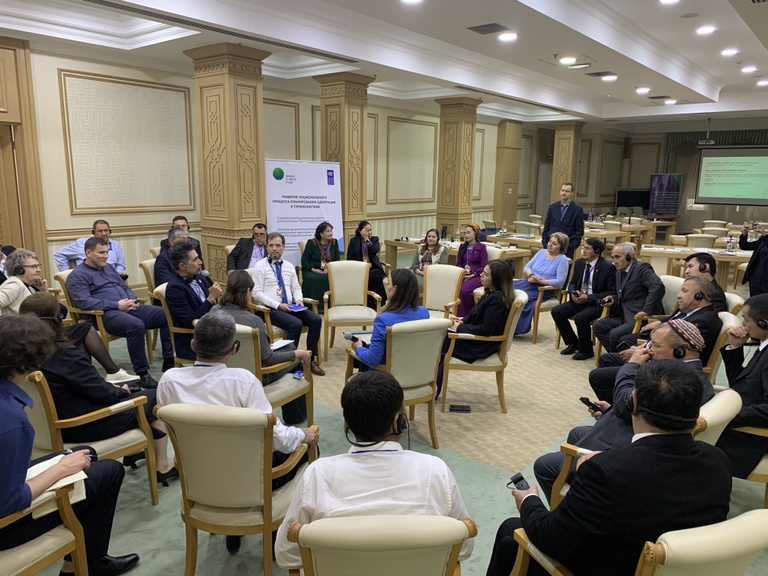
The event was organized within the framework of the project "Developing a National Adaptation Planning Process in Turkmenistan". This project is implemented by UNDP with the financial support of the Green Climate Fund (GCF) in cooperation with the Ministry of Environmental Protection of Turkmenistan, and the Green Central Asia initiative (an initiative launched by the German Federal Foreign Office in partnership with PIK and German Research Centre for Geosciences (GFZ)).
The aim of the workshop was to bring together key stakeholders, including policymakers, researchers, and practitioners, to discuss the interrelated issues related to climate change, hydrology, and agriculture, as climate change poses a serious threat to hydrological systems and agriculture, with cascading effects on human security.
The event was attended by representatives of the national ministries and state entities, including the Mejlis, the Ministry of Foreign Affairs, the Ministry of Agriculture, the Ministry of Finance and Economy, the Ministry of Health and Medical Industry, the State Committee of Water Management, the State Hydrometeorological Service, the State Scientific-Research Project Institute “Turkmensuwylymtaslama”, the Ministry of Education, the Union of Industrialists and Entrepreneurs, the Women’s Union, and many others. The topic of the workshop was recognized by participants as extremely relevant for Turkmenistan due to its vulnerability caused by arid climate, water scarcity, and importance of agriculture.






